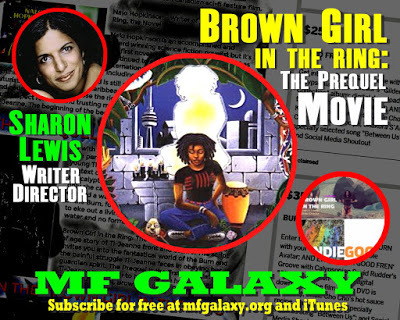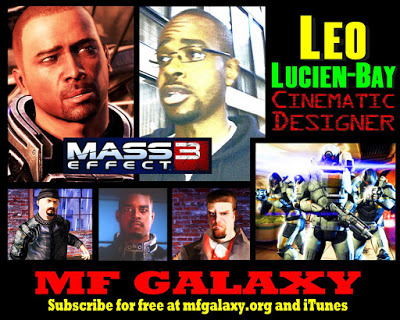Minister Faust's Blog, page 13
August 31, 2015
AHMED KNOWMADIC – NATIONAL CHAMPION SPOKEN WORD POET, COMMUNITY ACTIVIST, DYNAMITE BROTHER (MF GALAXY 041)

Stunning performer combines stand-up comedy & theatre background with socially conscious verse & community organising
Ahmed Knowmadic is an award-winning performance poet who—unlike most writers and performers—has been earning his living through his craft for the last three years by entertaining and enlightening people around the planet.
He’s performed for audiences in the thousands, and in March 2015 the British Council and the Norwich Writer Centre invited him to represent Canada during the International Literature Network conference.
Born in Mogadishu, Somali, in 1984, Ahmed migrated with his three older brothers and his mother to Italy during the collapse of the Somali state. Finding Italy inhospitable to his culture and religion, Ahmed and his family moved again—this time, to Canada.

After a troubled stint in Ontario and an even more troubling trip back to Somalia, he returned to Canada to study theatre and comedy writing, and even performed for Second City and various open mic nights in Toronto.
Finally settling in the Big E in 2008, Ahmed integrated himself into the city’s poetry scene and brought all his life and artistic experience—including comedy—to his writing and performances. Joining with a group of like-minded young performance poets, together they founded the Breath in Poetry Collective which not only performs poetry, but provides artistic and even business mentorship.
In 2011, Ahmed became the spoken word champion at the nation-wide Canadian Festival of Spoken Word, and won the RISE award for community involvement in arts and culture. In 2013 he was Artist in Residence at the Langston Hughes Performing Arts Institute in Seattle. He continues to excite and magnify E-Town’s poetry scene including by working with young people at conferences, in schools, and through various community organizations.
I recorded this episode’s conversation with Ahmed Knowmadic in October 2014 at Authorpalooza, a live talk-show author series I ran while I was writer in residence for the Department of English and Film Studies at the University of Alberta.
You’ll hear Ahmed perform his poem “Ignorance Infomercial,” and explain how other people’s rudeness forced him to make his text and performances as dynamic and engaging as possible. He’ll also discuss his experiences engaging the people of the Somali diaspora, including traditional elders and the delegates to a massive conference in the Somali capitol of North America. Finally, he’ll present his own advice for new poets, tell what drives him crazy about slam poetry, and reveal the danger of trying to please the audience. He begins by performing one of his most famous poems, “I Am Africa.”
To get all the bonus content, download the special EXTENDED EDITION of MF GALAXY, including a performance of one of Ahmed Knowmadic’s most powerful poems and an additional, never-before-aired interview, and the video of that interview!To download this extended edition of MF GALAXY, simply become a sponsor of theshow for a dollar or more per episode.
SUBSCRIBE FOR FREE ON iTUNES SUPPORT MF GALAXY ON PATREON PLEASE USE THE SHARE BAR AT THE END OF THIS POST
“Innocence”
“Somali Pirates (Desperate Fishermen)”
“I Am Africa”
“Ignorance Infomercial”
Visit Ahmed Knowmadic's YouTube channel
Published on August 31, 2015 08:02
August 24, 2015
JENNIFER ABBOTT ON THE CORPORATION, THE DOCUMENTARY ON HOW PSYCHOPATHS HAVE TAKEN OVER THE WORLD, AND HOW TO STOP THEM (MF GALAXY 040)

Corporate crime wave on a global scale that corporate media doesn’t want you to know about
The Canadian feature The Corporation is one of the most acclaimed and electrifying documentaries in recent memory, which examines corporations as one of the most dangerous institutions on the planet.
Beginning with the legal principle in the United States and Canada that corporations are “persons,” the documentary then asks the question, “If they are persons, what kind of persons are they?”
According to the fourth Diagnostic and Statistical Manual of Mental Disorders published by the American Psychiatric Association, corporations as persons meet the definition of psychopaths, that is, people unable to experience remorse.

Such a psychological defect turns such individuals into parasites and predators. A smaller number of them become killers. While the word psychopath and its one-time synonym sociopath have been replaced by the wordy phrase “Anti-Social Personality Disorder,” the meaning remains the same, and as the documentary explores, a potent and revealing way to explain and predict corporate behaviour, and perhaps to curtail and punish it.
In March 2004, Jennifer Abbott, one of The Corporation documentary’s directors, came to Edmonton to unveil her film which features interviews with major figures such as political analyst Noam Chomsky, documentarian Michael Moore, economist Milton Friedman, CEO Ray Anderson, journalist Naomi Klein, labour crusader Charlie Kernaghan, and commodities trader Carlton Brown, each of whom defends or attacks corporations.
During our conversation, we spoke of many of the film’s most dramatic moments, including the sequence depicting the attempt by the transnational corporation Bechtel to privatize the water supply of an entire country—including by making illegal the collection of rain water—and the inspiring revolt against that attack on national sovereignty and natural rights.
One aspect of the conversation you may find jarring is our eleven-year-old perspective on some events such as the illegal US invasion of Iraq, or political figures such as then-Prime Minister of Britain Tony Blair, then-President of the United States George W. Bush, and then-Prime Minister of Canada Paul Martin.
Throughout the show, you’ll hear clips from the documentary. Go to MFGalaxy.org to see some clips. Visit The Corporation.com to purchase a DVD of the film, and to contribute to the film-makers’ crowdfunding effort to give the film for free to one thousand schools.
To hear the special extended edition of this episode of MF GALAXY with 20 bonus minutes of my conversation with Jennifer Abbott, become a patron of MF GALAXY.
The more you pledge, the larger your rewards, but as little as 25 cents per week gets you access to all the extended editions of the show. Remember: You can power this podcast. So do it.
PLEASE USE THE SHARE BAR AT THE END OF THIS POST
SUBSCRIBE FOR FREE ON iTUNES SUPPORT MF GALAXY ON PATREON TO LISTEN/DOWNLOAD FREE, RIGHT-CLICK AND SELECT "SAVE AS" allowfullscreen webkitallowfullscreen mozallowfullscreen oallowfullscreen msallowfullscreen>
Published on August 24, 2015 08:53
RICK GREEN, SKETCH COMEDY LEGEND + PEERLESS SFF LITERARY INTERVIEWER (MF GALAXY 039)

Co-founder of The Frantics, host of History Bitesand Prisoners of Gravity, talks sketch comedy, TV production, and how Garry Shandling killed Four on the Floor
Rick Green is a legendary sketch comedy writer and actor and literary TV journalist. He co-founded the comedy troupe The Frantics with Dan Redican, Paul Chato, and Peter Wildman, and co-wrote and co-starred in their short-lived but superb TV show Four on the Floor. He also worked on The Red Green Show, The No Name Show, and All in Good Taste.
 While Green may be best known as the host of the science fiction and fantasy literary show Prisoners of Gravity and the history-media-satire History Bites, he’s received widespread acclaim for ADD & Loving It, a comedic-scientific look at Attention Deficit Hyperactivity Disorder that The Globe & Mail called “brilliant.”
While Green may be best known as the host of the science fiction and fantasy literary show Prisoners of Gravity and the history-media-satire History Bites, he’s received widespread acclaim for ADD & Loving It, a comedic-scientific look at Attention Deficit Hyperactivity Disorder that The Globe & Mail called “brilliant.”In today’s episode, I speak with Rick Green about:
The similarities between History Bitesand The Daily Show The unproduced, but fully-written second season of Four on the Floor How Garry Shandling killed Four on the Floor The writing approach that was responsible for producing the superb quality of Four on the Floor The creative risks, and the remarkable creative success of Prisoners of Gravity, and how it helped create the Watchmen feature film, and The effect he’s had on thousands of people through his documentary on ADHD
This episode’s conversation is from sublevel 19 in the archives of the Grand Lodge of Imhotep. It’s never been aired before now. I spoke with Rick Green during the Pure Spec con at the Edmonton Convention Centre on October 04, 2009. We began by discussing the deeper purpose of History Bites.
To purchase Frantics CDs and other merchandise, visit TheFrantics.com
PLEASE USE THE SHARE BAR AT THE END OF THIS POST
SUBSCRIBE FOR FREE ON iTUNES
SUPPORT MF GALAXY ON PATREON
TO LISTEN/DOWNLOAD FREE, RIGHT-CLICK AND SELECT "SAVE AS"
allowfullscreen webkitallowfullscreen mozallowfullscreen oallowfullscreen msallowfullscreen>

This episode is sponsored by the multiple-award-winning comic book store Happy Harbor Comics in Edmonton.
Happy Harbor offers every comic and manga and more you could possibly want and if they don’t have it in stock, the friendly staff will get it for you. Happy Harbor supports charities, schools and libraries, its own Artist in Residence, and even a scholarship. The store is family friendly, and the place where I buy all my comics and graphic novels, and where I have all my book launches. In short, it’s a great place.
If you’re in E-Town and shopping for comics, find Happy Harbor in the heart of downtown across from MacEwan University campus on 107th Street and 104th Avenue, and tell them heard about Happy Harbor on MF GALAXY.
Published on August 24, 2015 08:25
VANDANA SHIVA ON FIGHTING BIO-IMPERIALISM (MF GALAXY 038)

Scientist Eco-Warrior on Stopping Monsanto from Owning Life
Vandana Shiva is a world-renowned environmentalist and physicist who earned her Ph.D. on “Hidden Variables and Non-locality in Quantum Theory” at the University of Western Ontario. She’s also a featured interviewee in the acclaimed Canadian documentary The Corporation and the author of over three hundred papers and dozens of books.
 She founded the Research Foundation for Science, Technology and Ecology, which according to her website vshiva.net, “works on biodiversity conservation and protecting people's rights from threats to their livelihoods and environment.” She also founded Navdanya, an Indian movement to protect bio-diversity and life-form integrity, especially for native seeds.
She founded the Research Foundation for Science, Technology and Ecology, which according to her website vshiva.net, “works on biodiversity conservation and protecting people's rights from threats to their livelihoods and environment.” She also founded Navdanya, an Indian movement to protect bio-diversity and life-form integrity, especially for native seeds.Way back in 2004, Shiva spoke in Edmonton for the Revolutionary Speakers Series curated by the University of Alberta Students Union. We met outside an organic chain store in Edmonton’s historic Old Strathcona district to discuss—what else—saving the planet. She explained many things, including:
Why people living under corporate agriculture are “bio-serfs” How the fight for traditional farming is a fight for human rightsThe meaning of "planet rights"The agribusiness worst case scenario that’s already happening, and How rich countries use agribusiness subsidies to destroy the agricultural viability of developing nationsAlong the way, Shiva referenced Percy Schmeiser, the Saskatchewan farmer who battled agribusiness megacorp Monsanto all the way to the Supreme Court of Canada and lost.
We began by discussing the how differences between North American and European cultures affect the relationship between politics and science.
SUBSCRIBE FOR FREE ON iTUNES
SUPPORT MF GALAXY ON PATREON
TO LISTEN/DOWNLOAD FREE, RIGHT-CLICK AND SELECT "SAVE AS"
allowfullscreen webkitallowfullscreen mozallowfullscreen oallowfullscreen msallowfullscreen>
Published on August 24, 2015 08:12
MARIA DUNN – FOLK MUSIC CRUSADER-CHRONICLER OF WOMEN’S HISTORY (MF GALAXY 037)

Artist explains creation of brilliant album PIECE BY PIECE about immigrant worker women’s struggles and victories at historic GWG plant
Lyricist, singer, and multi-instrumentalist Maria Dunn is the Edmontonian folk music creator of the acclaimed albums From Where I Stand, For a Song, We Were Good People, The Peddler, and the brilliant Piece by Piece. Those records have won her nominations for the Prairie Music Awards, Canadian Folk Music Award, and the Juno Award, Canada’s equivalent to the Grammys.
Dunn has become famous for her creation of “social art” and historically-themed music. We Were Good People examines the lives of Canadian working folk, including the history of the African-Americans who settled in Alberta and the other prairie provinces more than a hundred years ago to create the first African-Canadian towns in the West.

But of all her socially-engaged work, the most praised has been Piece by Piece. Lyrically, it’s the life stories and labour victories of immigrant women from early 20thCentury Ukraine and Italy and mid-20th Century Vietnam, India, and Pakistan, and many other places and times, and how those lives the coalesce inside the GWG jeans factory in Edmonton. Musically, the factory floor of Piece by Piece is North American folk running machines assembled from Celtic strings, Indian sitar, and Ukrainian dance.
The album embodies Mark Twain’s sage advice: for art to be timeless, it must never overtly teach or overtly preach, but it must covertly teach and covertly preach. The beautiful voice and music, and the tender and powerful stories of Piece by Piece make it one of the finest achievements in Canadian and indeed North American contemporary art.
Maria Dunn spoke with me in October 2014 onstage at Authorpalooza #1, part of a series of live talk-show writer events I created and hosted while I was the Writer in Residence at the University of Alberta’s Department of English and Film Studies.
She explored many topics, including:
How her artist residency with the Edmonton District Labour Council led her to create Piece by Piece as a live performance including with video accompanimentThe interviews with the women who had made the GWG plant profitable before the bosses shut it down, and how their lives created the stories of the albumThe international musical influences in her own life and from the lives of the GWG workers that shaped Piece By Piece musically, including for Dunn the work of the Indo-British experimentalist Sheila ChandraHer lyrical craft—how she sifted through a biographical garage packed with many lifetimes of keepsakes and treasures, to produce a single mailbox of unforgettable and timeless letters to convey those lives… and the advice she gives to young songwriters who need to move past endless songs of love, love loss, and lustI began by asking her how she got involved with the project that eventually became her live performance and the album called Piece by Piece. Throughout the show, you’ll hear excerpts from several of its songs.
Buy Maria Dunn's music SUBSCRIBE FOR FREE ON iTUNES SUPPORT MF GALAXY ON PATREON
allowfullscreen webkitallowfullscreen mozallowfullscreen oallowfullscreen msallowfullscreen>
Published on August 24, 2015 07:55
ANGELA DAVIS ON ACTIVISM, RACISM + THE PRISON-INDUSTRIAL COMPLEX (MF GALAXY 036)

1960s iconic revolutionary talks paths to peace, her hip hop connections, and how jail imprisons all of society
Angela Davis: former member of the American Communist Party, former fugitive, former potential denizen of death row, and very current human rights activist. She’s far more than the photographic cliché that her iconic Afro has become. To millions, the author-intellectual Davis is a living hero from an era in which too many firebrands were extinguished all-too violently.

She was born in Birmingham, Alabama in 1944, and took her parents’ social justice activism to her marrow. When she was a teenager she joined the Student Nonviolent Coordinating Committee. A brilliant young student, she travelled at age 16 to Germany where she studied at the Frankfurt School under the guidance of German philosopher and critical theorist Theodor Adorno. While studying at the Sorbonne in 1963, Davis received word that two of her friends had been murdered. Euro-American terrorists had butchered her friends Rosamond Robertson and Cynthia Wesley, two of four African American girl victims at the Birmingham church bombing. Davis described them as being like sisters to her.
SUBSCRIBE FOR FREE ON iTUNES
Upon her return to the US, Davis graduated with her B.A. magna cum laude. Upon earning her Master’s Degree, Davis began teaching in California’s public university system, where she earned the wrath of then-governor Ronald Reagan for her association with the revolutionary Black Panther Party and her membership in the Communist Party; Reagan’s government attempted to have her fired. But that case of political repression disguised as employment harassment would soon prove to be the least of her problems.
Davis was linked romantically to George Jackson, author of Soledad Brother, hard-time prisoner and “Field Marshall” for the BPP. In 1970, Jonathan, Jackson’s younger brother, attempted to free his brother from a Marin County courthouse; his bungled operation led to his own death, and the deaths of three other African Americans and a Euro-American judge. Accused of having supplied weapons to Jonathan Jackson, Davis became a fugitive, and at age 26 became the third woman in US history to be placed on the FBI’s Most Wanted List.
On the run for weeks, living in and out of safe houses until she was finally caught and imprisoned awaiting trial, Davis conducted a first-hand analysis of the interior of what she would later call the US “prison-industrial complex.” A black star on Richard Nixon’s and Ronald Reagan’s enemy list, Davis faced execution by toxic gas; having become an international cause celebre, Davis eventually won acquittal and her own freedom, but refused to walk away from the horrors she’d seen behind bars for the last (and nearly the final) sixteen months of her life.
As arguably the lead advocate for prisoner rights in the United States, Davis entered electoral politics as the US Communist Party’s vice presidential candidate in 1980 and 1984, and published books on a variety of topics, including Women, Race & Class; Blues Legacies and Black Feminism: Gertrude "Ma" Rainey, Bessie Smith, and Billie Holiday; Abolition Democracy: Beyond Prisons, Torture, and Empire; and her classic autobiography. Today as Professor Emerita, she teaches in the History of Consciousness Department at the University of California, Santa Cruz, inside the very state system Reagan swore would never employ her again.
She continues to lecture widely, and is a mainstay on the modern enemies-lists of American arch-conservatives.Angela Davis spoke with me by telephone from her home in San Francisco in March 2006, prior to her appearance at the University of Alberta Students’ Union Revolutionary Speakers’ Series in Edmonton. We spoke about many topics, including:
The struggle to overcome racism inside the peace and social justice movementThe political significance of the Canadian activist Irshad Manji, author of The Trouble With Islam TodayThe reasons for the affection by many African Americans for former US president Bill ClintonAngela Davis’s early 1990s connection with rap star Ice Cube and her perspective on hip hop, including her favourite rappersThe archetypal, historical, literary, and political significance of the prison industrial complex, and the elimination of the prison programmes that promote rehabilitationHow the political value of dehumanizing prisoners reflects the political propaganda around anyone deemed to be a “terrorist”
We began by discussing solutions to the problems facing us right now. Remember that Davis spoke with me during the second term of US president George W. Bush.
SUPPORT MF GALAXY ON PATREON
Please use the SHARE bar
at the end of this post
allowfullscreen webkitallowfullscreen mozallowfullscreen oallowfullscreen msallowfullscreen>
Published on August 24, 2015 07:42
August 10, 2015
SHARON LEWIS + BROWN GIRL IN THE RING, THE SEQUEL (MF GALAXY 035)

Maverick writer-director making indie film predecessor to Nalo Hopkinson’s groundbreaking Africentric SFF novel
Brown Girl in the Ring is Nalo Hopkinson’s 1998 breakthrough novel that revitalised Africentric science fiction and fantasy. It’s the story of Ti-Jeanne, a medic and traditional healer in a near-future failed state Toronto. Ti-Jeanne can see through time, and she needs that power to survive the criminal despotism of Rudy, who runs the ruined city from his castle in the sky, the top of the CN Tower.
Ti-Jeanne comes to understand the source of her vision, as embodied in what some Caribbean people call Carnival Spirits, but are actually the gods of the Ilé Ifé religion of the Yoruba kingdom sprawling Nigeria, Togo, and Benin. Those deities dwell across the Western Hemisphere in the religions of Santeria in Cuba, Candomblé and Umbanda in Brazil, and Voudou in Haiti. That family of faiths encompasses 50 million adherents, making it larger than the combined Sikh, Jewish, and Bahá’í populations of the world.
Brown Girl in the Ring won the Warner Aspect First Novel Contest and the Locus Award for Best First Novel, and it won Hopkinson the 1999 John W. Campbell Award for Best New Writer.

Now Brown Girl in the Ring is coming to the screen in the form of Brown Girl in the Ring: The Prequel . That’s the indie film currently in pre-production as helmed by writer, director, and actor Sharon Lewis. Lewis may be best known to Canadians as host of CBC Newsworld’s Counter Spin, and as the mysterious DJ in Clement Virgo’s film Rude. She’s directed numerous episodes of television and the feature films Ritch, Chains, and Income Property.
But for Brown Girl in the Ring: The Prequel to get produced, it still needs money, and that’s why Lewis has turned to crowd-funding. This podcast goes live on Friday, July 17 2015. You have until tomorrow to donate through Indie Gogo. To get this movie made, visit http://browngirlinthering.ca.
In this episode, Sharon Lewis talks about her plans for the prequel she’s written and that she’ll direct, and also:
Hollywood’s continual neglect of coloured actors who, of course, represent the vast majority of the human race Why she cares about science fictionand how she came to love itThe appeal of post-apocalyptic fiction, especially for coloured peopleSharon Lewis’s ambitious plans for expanding the Brown Girl in the Ring universe in present and future venues and media including television and video games The aesthetic strategy for making movies on a micro budgetThe amazing prizes you can get for supporting the crowd-funding campaign for the feature film
Sharon Lewis spoke with me by Skype from her home in Toronto on July 14, 2015. You’ll hear some noise throughout our conversation which is either someone cleaning or cats using a litter box.
Along the way we discuss the Tumblr account Every Single Word which is a web series featuring Hollywood movies edited down to only the lines spoken by coloured actors. The result is 2-hour films shortened to two minutes, or twenty seconds, or sometimes zero seconds.
SUBSCRIBE FOR FREE ON iTUNES SUPPORT MF GALAXY ON PATREON allowfullscreen webkitallowfullscreen mozallowfullscreen oallowfullscreen msallowfullscreen>
Published on August 10, 2015 07:26
WAYMATEA ELLIS, AKA SISTA J OF SOULJAH FYAH (MF GALAXY 034)

WRITING LYRICS, RUNNING A BAND, AND THE BLESSING OF EARLY ADOPTER SUPER-FANS
Waymatea, better known as Sista J, is the band leader, lead singer, lead lyricist, and founding member of Souljah Fyah, one of Canada’s most popular and most celebrated reggae bands. Souljah Fyah has released three albums including their self-titled debut, Truth Will Reveal , and I Wish . The band has just returned from producing an album in Jamaica that is scheduled for release early 2016.
Unlike most of her contemporaries in popular music, Waymatea is an accomplished song writer, weaving her albums with everything from searing anti-genocide anthems and hometown cheer-sections to spiritual hymns and tender songs of heartbreak.

In this episode of MF GALAXY, Waymatea discusses:
What poets and prose writers who want to try songwriting need to understand to find artistic success Her practice of editing lyrics, and the magical mindsetfor creating those lyrics in the first placeThe power of ironic contrast between lyrics and melody The business of running a band, and the surprising first business move Waymatea made when she formed Souljah FyahHow her professional school teaching background shaped the way she ran her band, and when and why that stopped working Her unexpected advice for how millennials should promote their bands, andThe amazing power of early adopter super-fans Waymatea spoke with me on December 3, 2014 by Skype from her home in LA—that’s Leduc, Alberta.
Note that throughout our conversation, Waymatea’s young daughter makes several quiet cooing remarks and sound effects. Full disclosure: Waymatea and I are good friends; we met when we were both children, and in the early 1990s we worked together in EBONY, an African-Canadian youth group. We begin with Waymatea introducing herself.
BUY SOULJAH FYAH ALBUMS AND DOWNLOADS SUBSCRIBE FOR FREE ON iTUNES SUPPORT MF GALAXY ON PATREON Please use the SHARE bar at the end of this post
Published on August 10, 2015 07:09
ALGERNON AUSTIN – TRUTH AND LIES ABOUT “ACTING WHITE” (MF GALAXY 033)
The appalling distortions US Black public intellectuals are spreading about Africans in the US

If you watch or listen to the news, read magazines or popular books on current events, or perhaps simply check out movies, video games, or music videos, you’ve probably formed a number of conceptions of quality of life among Africans in the United States. Everyone knows, for instance, that teen pregnancy and out of wedlock births are increasing, violence and poverty are increasing, that post-secondary enrollment is down, high school completion and grades are down, and literacy, voting, and self-respect is down. Everybody knows all the above is true. And everybody is wrong.

Sadly, many of the people who believe the above myths are the Black public intellectuals of the United States. Some are conservatives in the service of right wing think tanks. Others define themselves as progressives or even revolutionaries. Still others are popular entertainers who’ve been paid spokesmen for White corporate America.
Thankfully, some academics are using the modest and sensible tools of research to counter reaction.
The 2007 book Getting it Wrong: How Black Public Intellectuals Are Failing Black America by sociologist Algernon Austin corrects myths about African Americans and crime, educational decline, so-called “cultural deficiency,” racial self-hatred, and the alleged scourge of “acting White.”
Sociologist Algernon Austin is the author of Getting It Wrong: How Black Public Intellectuals Are Failing Black America, the director of the Thora Institute , and the editor of Black Directions, the Institute’s reports on social issues affecting African Americans. He's also the former director of the Economic Policy Institute’s Program on Race, Ethnicity, and the Economy, and was a senior fellow at the Dēmos think tank. He’s taught sociology at DePaul and Wesleyan universities.
This episode’s interview comes from the 16th sub-basement of the archives at the Grand Lodge of Imhotep. I originally interviewed Dr. Austin by telephone on September 16, 2007; he spoke with me by telephone from his home in Connecticut.
Our conversation cites Bill Cosby. Back in 2007, long before the public disgracing of Bill Cosby over numerous rape allegations, Cosby was in the public eye for what has come to be known as the “Poundcake” lectures, which were either calls for personal responsibility by, or attacks on, poor African Americans.
Algernon Austin begins by discussing the causes of increasing success of African students in the United States.
PLEASE USE THE SHARE BAR AT THE END OF THIS POST
SUBSCRIBE FOR FREE ON iTUNES
SUPPORT MF GALAXY ON PATREON
allowfullscreen webkitallowfullscreen mozallowfullscreen oallowfullscreen msallowfullscreen>
Published on August 10, 2015 06:37
June 28, 2015
LEO LUCIEN-BAY – CINEMATIC DESIGNER IN VGs + MACHINIMA (MF GALAXY 032)

Why video games are superior to movies, how to make machinima for fun and profit, and the dearth of African VG-makers in North America
Leo Lucien-Bay is a cinematic designer on the BioWare blockbuster video games Mass Effect 2 and Mass Effect 3.
In addition to essentially “directing” the playable dialogue sequences of those games, Lucien-Bay is also an animator in the hacker’s form of animation called machinima, also pronounced ma-kin-ema (like cinema). He wrote and directed an award-winningmachinima called “Beast” that got him his job at BioWare.
Lucien-Bay’s originally from England and lived part of his young life in Cameroon. He’s a lifelong fanboy who favours DC over Marvel. He hates bragging almost as much as he hates smiling. And he’s made a life for himself and his young family in Edmonton. In full disclosure, we worked together on Mass Effect 2 and we’re friends.
 In today’s episode, Leo Lucien-Bay discusses:How you can make machinima for endless fun and massive profit (but not really) Which game engine you’ll need to commandeer to make machinimaHis opinion of Roger Ebert’s claim that video games aren’t art The consumer cost per hour of playing games vs. watching a movie The trainingrequired to be a cinematic designer, and what’s even more valuable than a diploma or a degree Lucien-Bay’s perspectives on being a role model and why there aren’t more Africans in North America’s video game studios, and The difference between the work of a cinematic designer and a cinematic animator.
In today’s episode, Leo Lucien-Bay discusses:How you can make machinima for endless fun and massive profit (but not really) Which game engine you’ll need to commandeer to make machinimaHis opinion of Roger Ebert’s claim that video games aren’t art The consumer cost per hour of playing games vs. watching a movie The trainingrequired to be a cinematic designer, and what’s even more valuable than a diploma or a degree Lucien-Bay’s perspectives on being a role model and why there aren’t more Africans in North America’s video game studios, and The difference between the work of a cinematic designer and a cinematic animator. This episode’s conversation is from deeps in the archives of the Grand Lodge of Imhotep. This interview originally ran on my show Africentric Radio on CJSR FM 88.5 Edmonton on April 4, 2012. Leo Lucien-Bay spoke with me at the restaurant beneath the offices of BioWare in Edmonton on March 1, 2012, just after completing work on Mass Effect 3.
He began by talking about the personal demands of career mobility.
Please use the SHARE bar at the end of this post
SUPPORT MF GALAXY ON PATREON
SUBSCRIBE FOR FREE ON iTUNES
TO DOWNLOAD FOR FREE, RIGHT-CLICK AND SELECT "SAVE AS"
allowfullscreen webkitallowfullscreen mozallowfullscreen oallowfullscreen msallowfullscreen>
Published on June 28, 2015 19:47



